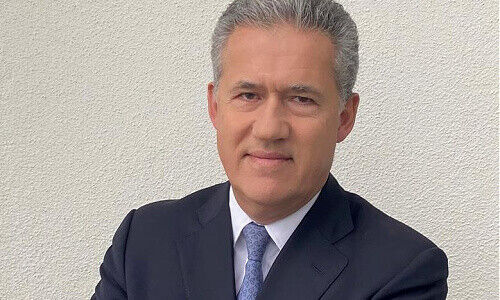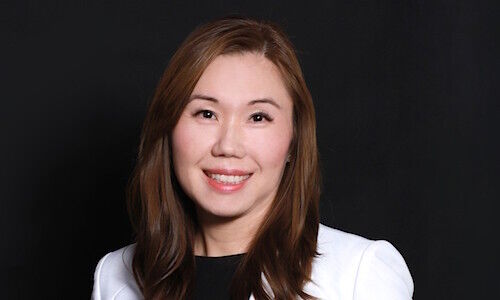Beat Wittmann: «Russia’s Gamble With the Ukraine»
The Russian President Vladimir Putin threatening the Ukraine offers highly uncertain rewards yet a potentially lethal downside for him and his inner circle, Beat Wittmann writes in an essay on finews.first.
This article is published on finews.first, a forum for authors specialized in economic and financial topics.
Russia is getting ahead of itself apparently emboldened by the illegal and only modestly sanctioned seizure of Crimea. The blame, however, lies by no small measure with Western leaderships themselves having accommodated Russia only too often for various reasons and specific vested interests. Any divergences in the interests and policies of the Western powers have often been skillfully and ruthlessly exploited by the Russian leadership.
The U.S., EU and NATO would be well advised to remain calm, ignore the Russian President’s red lines and ultimatums by simply calling his bluff. At the same time, however, it is important and wise that the West will engage in well-coordinated and constructive negotiations, foremost and mainly in the appropriate multilateral framework as for example has been successful within the OSCE.
«No doubt, the Russian President craves for respect in a new world order»
Clearly, the Russian President’s two key motivations are to secure his personal power and restore Russia’s historical borders and spheres of influence along with its geopolitical relevance. No doubt, the Russian President craves for respect in a new world order, having lost many former territories, as well as economic weight and political influence against the dominating global superpowers US, EU and China.
Russia’s central argument why Russia and the Ukraine should be one entity is a long shared history and people with a common identity. Needless to say, with these arguments there could be many national lines redrawn worldwide and that this is exactly what Europe has overcome after centuries of warfare, power politics, ever-changing alliances with post-WW II reconciliation and the creation of the EU.
In theory, the very moment Russia attacks the Ukraine, major casualties would be suffered on both sides. The concerted international and multifaceted counter-reaction in form of sanctions and isolation would be triggered on the spot.
«Putin’s threat to break with Western relations in the case of further sanctions is empty, entirely»
Russia may be a super-power in military and in conventional energy (oil/gas) terms. Yet for revenue reasons, Russia cannot play the energy card as economic and financial harm to itself would by far outweigh the damage to the rest of Europe. Any restriction of its energy exports to Europe would further accelerate Europe’s diversification into alternative energy providers such as the Middle East and Africa and, simultaneously, spur the transition to non-traditional and renewable energies.
Putin’s threat to break with Western relations in the case of further sanctions is empty, entirely! Nothing would accelerate the political and security cohesion in Western and Eastern European populations, in the transatlantic alliance and within the EU and NATO more rapidly than Russia invading the Ukraine.
«Russia’s strategic options are to de-escalate, attack or muddle through»
The U.S. and the EU have a vast and lethal arsenal of direct and indirect sanctions at their disposal. These include seizing properties and blocking real and financial assets in Western jurisdictions, shutting out of international capital markets, cutting the international payment system SWIFT and Foreign Direct Investments (FDI), forbidding or restricting Western firms to operate in and trade with Russia, imposing travel restrictions on the Russian elite and making life for Russian nationals abroad difficult.
Russia’s strategic options are to de-escalate, attack or muddle through. Our base case is that Russia sticks to its known muddle-through habits and will not start a unilateral military aggression against any neighboring country. Old habits prevail. In such a scenario Russian financial assets are attractively valued and timely to invest in.
«Such a scenario would tank the Russian capital markets and economy inducing sharp losses»
The obvious risk lies in an unexpected Russian attack on a neighboring country, such as the Ukraine, by deploying significant military action. Such a scenario would tank the Russian capital markets and economy inducing sharp losses, market discontinuity, defaults and sanctions. As a consequence, foreign multinationals and corporates in any relevant way exposed to Russia will suffer.
Yet even in the case of Russian military actions, global markets, including Europe, would merely respond with some spike in volatility while otherwise any weakness due to such conflict should be considered as a significant buying opportunity. Why? Russia in terms of size and interdependence with the world economy and global equity, debt and currencies markets is a marginal player.
«The potential military conflict in question will trigger higher spending»
Two sectors stand out as beneficiaries of any protracted and armed conflict. In the short-term, conventional energy sources will profit from temporary supply squeezes and in the medium to longer-term, alternative energy will benefit from dramatic investment and growth acceleration due to the need to diversify away from Russian energy providers.
The global aerospace and defense sector also stands to profit as not only the potential military conflict in question will trigger higher spending but also the resulting shake-up will lead to higher defense spending by all international actors.
Beat Wittmann is chairman and partner of Zurich-based financial advisory firm Porta Advisors for over six years now. His more than 30-year career in Swiss banking includes stints at both UBS and Credit Suisse as well as Clariden Leu and Julius Baer. He operated his own firm from 2009 to 2015, first independently and more recently under the Raiffeisen Group.
Previous contributions: Rudi Bogni, Peter Kurer, Rolf Banz, Dieter Ruloff, Werner Vogt, Walter Wittmann, Alfred Mettler, Robert Holzach, Craig Murray, David Zollinger, Arthur Bolliger, Beat Kappeler, Chris Rowe, Stefan Gerlach, Marc Lussy, Nuno Fernandes, Richard Egger, Maurice Pedergnana, Marco Bargel, Steve Hanke, Urs Schoettli, Ursula Finsterwald, Stefan Kreuzkamp, Oliver Bussmann, Michael Benz, Albert Steck, Martin Dahinden, Thomas Fedier, Alfred Mettler, Brigitte Strebel, Mirjam Staub-Bisang, Nicolas Roth, Thorsten Polleit, Kim Iskyan, Stephen Dover, Denise Kenyon-Rouvinez, Christian Dreyer, Kinan Khadam-Al-Jame, Robert Hemmi, Anton Affentranger, Yves Mirabaud, Katharina Bart, Frédéric Papp, Hans-Martin Kraus, Gerard Guerdat, Mario Bassi, Stephen Thariyan, Dan Steinbock, Rino Borini, Bert Flossbach, Michael Hasenstab, Guido Schilling, Werner E. Rutsch, Dorte Bech Vizard, Adriano B. Lucatelli, Katharina Bart, Maya Bhandari, Jean Tirole, Hans Jakob Roth, Marco Martinelli, Thomas Sutter, Tom King, Werner Peyer, Thomas Kupfer, Peter Kurer, Arturo Bris, Frederic Papp, James Syme, Dennis Larsen, Bernd Kramer, Armin Jans, Nicolas Roth, Hans Ulrich Jost, Patrick Hunger, Fabrizio Quirighetti, Claire Shaw, Peter Fanconi, Alex Wolf, Dan Steinbock, Patrick Scheurle, Sandro Occhilupo, Will Ballard, Nicholas Yeo, Claude-Alain Margelisch, Jean-François Hirschel, Jens Pongratz, Samuel Gerber, Philipp Weckherlin, Anne Richards, Antoni Trenchev, Benoit Barbereau, Pascal R. Bersier, Shaul Lifshitz, Klaus Breiner, Ana Botín, Martin Gilbert, Jesper Koll, Ingo Rauser, Carlo Capaul, Claude Baumann, Markus Winkler, Konrad Hummler, Thomas Steinemann, Christina Boeck, Guillaume Compeyron, Miro Zivkovic, Alexander F. Wagner, Eric Heymann, Christoph Sax, Felix Brem, Jochen Moebert, Jacques-Aurélien Marcireau, Ursula Finsterwald, Claudia Kraaz, Michel Longhini, Stefan Blum, Zsolt Kohalmi, Karin M. Klossek, Nicolas Ramelet, Søren Bjønness, Andreas Britt, Gilles Prince, Salman Ahmed, Stephane Monier, and Peter van der Welle, Ken Orchard, Christian Gast, Jeffrey Bohn, Juergen Braunstein, Jeff Voegeli, Fiona Frick, Stefan Schneider, Matthias Hunn, Andreas Vetsch, Fabiana Fedeli, Marionna Wegenstein, Kim Fournais, Carole Millet, Swetha Ramachandran, Brigitte Kaps, Thomas Stucki, Neil Shearing, Claude Baumann, Tom Naratil, Oliver Berger, Robert Sharps, Tobias Mueller, Florian Wicki, Jean Keller, Niels Lan Doky, Karin M. Klossek, Johnny El Hachem, Judith Basad, Katharina Bart, Thorsten Polleit, Bernardo Brunschwiler, Peter Schmid, Karam Hinduja, Zsolt Kohalmi, Raphaël Surber, Santosh Brivio, Mark Urquhart, Olivier Kessler, Bruno Capone, Peter Hody, Andrew Isbester, Florin Baeriswyl, and Michael Bornhaeusser, Agnieszka Walorska, Thomas Mueller, Ebrahim Attarzadeh, Marcel Hostettler, Hui Zhang, Michael Bornhaeusser, Reto Jauch, Angela Agostini, Guy de Blonay, Tatjana Greil Castro, Jean-Baptiste Berthon, Marc Saint John Webb, Dietrich Goenemeyer, Mobeen Tahir, Didier Saint-Georges, Serge Tabachnik, Rolando Grandi, Vega Ibanez, Beat Wittmann, David Folkerts-Landau, Andreas Ita, Teodoro Cocca, Michael Welti, Mihkel Vitsur, Fabrizio Pagani, Roman Balzan, Todd Saligman, Christian Kaelin, Stuart Dunbar, Fernando Fernández, Carina Schaurte, Birte Orth-Freese, Gun Woo, Lamara von Albertini, Philip Adler, Ramon Vogt, Gérard Piasko, Andrea Hoffmann, Niccolò Garzelli, Darren Williams, Benjamin Böhner, Mike Judith, Gregoire Bordier, Jared Cook, Henk Grootveld, Roman Gaus, Nicolas Faller, Anna Stünzi, Philipp Kaupke, Thomas Höhne-Sparborth, Fabrizio Pagani, Taimur Hyat, Ralph Ebert, Guy de Blonay, Lars Jaeger, and Jan Boudewijns.



























